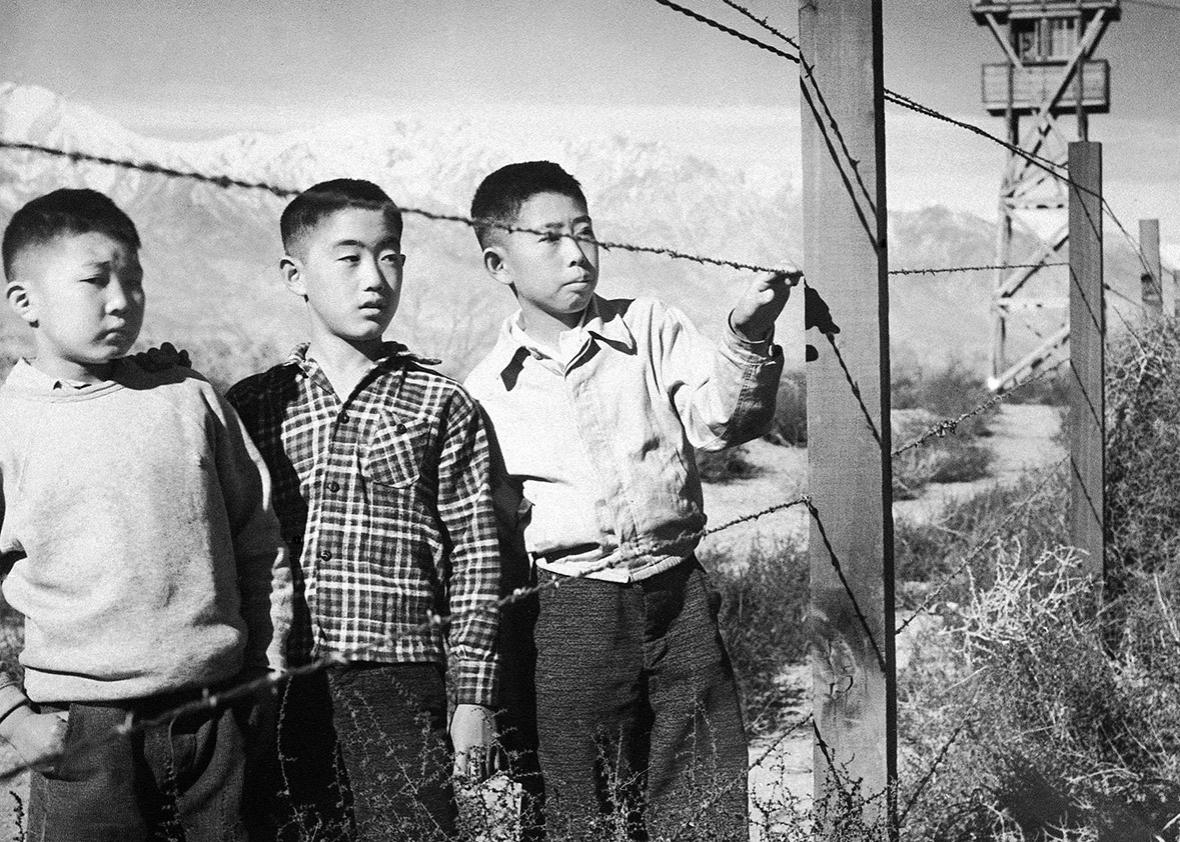If you like what you see, please encourage a friend, family member, or enemy to sign up for the Today in Slate email newsletter here.
Running Slates,
An understatement: Since the Paris attacks last week, many American politicians have expressed their fear of Syrian refugees. More precisely: The Paris attacks have inspired a rash of misinformed paranoia, cynical fearmongering, and bigotry.
Politicians arguing that security requires protecting ourselves from a specific nationality and religion have missed a moral lesson of World War II.
On Wednesday, Roanoke, Virginia mayor David Bowers called on his region’s governmental and nonprofit agencies to reject Syrian refugees: “I’m reminded that Franklin D. Roosevelt felt compelled to sequester Japanese foreign nationals after the bombing of Pearl Harbor, and it appears that the threat of harm to America from ISIS now is just as real,” Bowers wrote, suggesting that Japanese internment was appropriate. (When pressed, he called the internment policy “the right decision.”) His words reflect the fear-based logic behind many of the recent calls to reject refugees en masse. As Dahlia Lithwick and Laurel Reiman Henneman write, “The lesson of Japanese internment is that fear makes us stupid and careless,” and should call to mind the danger of group stereotyping, not its efficacy. Their argument recounts the Supreme Court case of Korematsu v. United States, which challenged the constitutionality of the internment camps. The case’s eloquent dissents have won in the annals of history. They are worth revisiting amid a time of xenophobic madness.
Donald Trump is famously xenophobic and mad, but in terms of Republican orthodoxy, he’s pretty moderate.
Trump seems like a radical. He openly insults women, calls Mexicans rapists and pimps, and this week, he refused to oppose literally tracking Muslims in America with special IDs and databases. These comments, however, don’t reflect the issues most important to Republican voters. Historically, Republicans vote in three blocks: social conservatives, anti-tax conservatives, and national security hawks. Jamelle Bouie examined the Republican field, and found something surprising: Trump is the one who most appeals to all three, and he does so with policies well within the party’s platform. Trump’s background and style make him unorthodox and extreme, but for GOP voters, his policy positions make him positively normal. Maybe, Bouie suggests, that’s the real reason he’s still winning.
Putin is winning the post-Paris world of diplomacy, evolution is taking its natural course, and Obama is losing the refugee debate.
- Before the Paris attacks, Western leaders were diplomatically marginalizing Vladimir Putin. Now he’s shrewdly turned the fight against ISIS to his own advantage.
- Despite Barack Obama’s speeches counseling the opposite, lots of Democrats are joining Republicans in calls to keep out refugees.
- A growing number of young people believe in evolution—which, reminder, is a scientific certainty that should not hinge on belief. Perhaps there is hope yet for the species.
From the swamp,
Seth Maxon
Home page editor for nights and weekends
